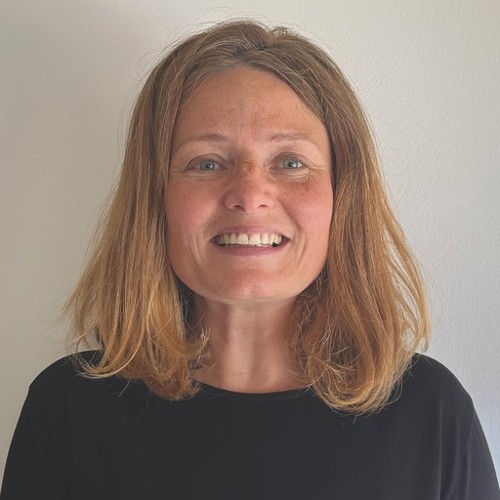Disrupting the traditional world of finance
The world of banking and finance is rapidly evolving. Technological developments drive progress and change at an unprecedented rate and the future of finance will look very different. The workforce of tomorrow will require a higher level of digital literacy to solve the problems that emerge as new technology meets traditional financial infrastructures.
Bayes’ new Financial Technology and Innovation MSc, launching in September 2024, is pioneering a new approach, offering a comprehensive and challenging learning environment with core modules in finance, technology, law, coding and data science. It will give graduates cutting-edge knowledge and skills, ready to excel and progress their careers in a range of sectors.
We spoke to course leader Dr Zsofia Kraussl, Senior Lecturer in Finance, to learn more about the new programme and how it seeks to disrupt some long-held traditions and business practices.
Who is this course for?
This course is for the innovators and disruptors, who are interested in the future of finance and what it will look like. The traditional system has operated for a long time, but technology now allows us to alter these fundamental processes. That means the old approach is no longer sustainable and progress is rapid. How will banks, institutions and banking services adapt and change?
The new MSc combines world-leading academic insight with outstanding practical market knowledge. It gives students a new toolset in finance, engineering and entrepreneurship and innovation to tailor the transition within the financial sector. Our graduates will be at the very forefront of this data driven dawn. We’re educating students for the future market needs by adding knowledge in areas such as blockchain, coding and the fintech landscape, as well first-hand market insight.
It's a course for entrepreneurs and those involved in London’s fintech start-up community, but also for those working within traditional financial organisations, who wish to focus on disciplines such as information systems, risk management and regulation.
How is the Bayes course different to other programmes?
The Bayes programme is a very distinctive offer. We’re bringing together some of the leading academics at Bayes from different Faculties, such as finance, engineering, and law. We invite and include business professionals to our classrooms to provide hands-on industry experience and practical knowledge.
London has long been the frontrunner in leading change in the sector, and we feel now is the perfect time to introduce the programme. The market is fast changing and fluctuating, and new academic knowledge is constantly emerging. But it’s time to do data driven analysis and research and have the facts to base change on. That’s what we will be equipping students with.
It is an intensive experience, which is practical and problem oriented. The beauty of postgraduate courses is that classes are smaller, with a more specialised focus. That means we can challenge students with targeted education, individual tracking and personal development.
It will attract a diverse array of students, who will collaborate and work with people from different disciplines. In the classroom they will be exposed to different skillsets and experiences, which students themselves will bring.
Prior to beginning this degree, students will be offered access to pre-study modules that focus on building mathematical and statistical skills, and which introduce them to coding in Python.
Why is London a good place to take this course?
Many global financial institutions have their headquarters based in the capital, and London has traditionally been the location for strategic decision making and operations. The financial market is now global, but London has long been the frontrunner in fintech and disruption and emerging trends.
As well as these major banking institutions we’ve got some of the leading fintech start-ups and accelerators to collaborate with, all within walking distance. That creates an incredibly dynamic hands-on learning environment.
We’ll be running supervised industry projects where students will work in groups on live programmes, bringing that complex mindset and perspective to current problems in real-world organisations.
Added to this, Bayes has long established connections with industry and a strong alumni network – that provides great networking opportunities for students.
What career paths can graduates follow?
Graduates may choose to continue their career in the financial sector, and steer institutional digital transformation from within as a business analyst, or as an innovation manager and service innovation specialist.
The degrees also allows them to take up more traditional roles, such as investment manager or data analyst or quantitative researcher, and apply their forward-looking knowledge accordingly.
Alternatively, graduates might enter the fintech sector and work for a start-up venture or an established finance or banking firm looking to become more technologically capable. They could also work for an IT firm or a consulting firm specialising in banking and finance, as they are always seeking individuals with a broad, diverse knowledge covering different disciplines and competences.
Last, but not least, it may stimulate graduates to develop their own technology-based financial service idea and bring a new venture to market.
Whatever path our graduates choose, it’s an incredibly exciting time to be at the forefront of change and innovation!
Learn more
Visit our website for more information on the Financial Technology and Innovation MSc.
About Dr Zsofia Kraussl

Dr Zsofia Kraussl joined Bayes in September 2023 as Senior Lecturer in Finance. She obtained her PhD in information systems management and requirements engineering in 2011, at the Free University Amsterdam, The Netherlands. Her main research activities relate to Digital Finance, with a focus on investigating valuation fundamentals, as well as the socio-economic and performance effects of data as an emerging asset class. Zsofia designed and set up a year-long MSc study programme in Digital Transformation in Finance at the University of Luxembourg. She is a visiting scholar at the Center for Studies in Higher Education (CSHE) at UC Berkeley.